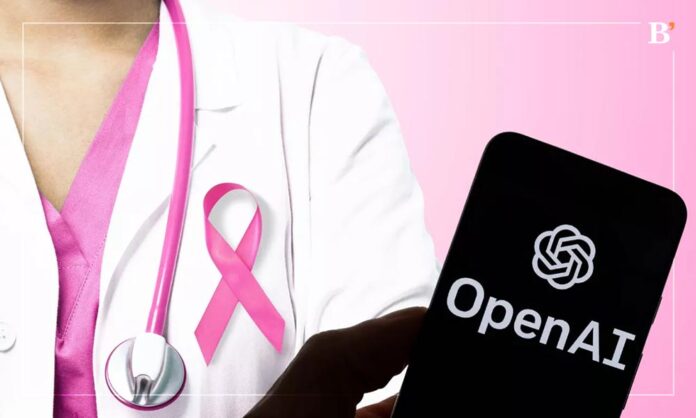Key Highlights
- A new study found that the AI chatbot ChatGPT provided appropriate answers to breast cancer screening and prevention questions 88% of the time.
- Despite the high accuracy rate, researchers warn that the tool’s limited scope and inability to verify information make it unsuitable to replace human doctors.
ChatGPT has gained popularity among users seeking quick and easily accessible answers to their queries. A new study published in the journal Radiology has shown that the AI tool could answer basic breast cancer screening and prevention questions with an accuracy rate of 88%.
ChatGPT’s Limitations Highlighted In Study of Breast Cancer Screening Questions
The study also highlighted the limitations of the technology and cautioned against relying solely on its responses for medical advice. One of the limitations of ChatGPT is its tendency to provide a limited scope of information in response to complex questions, which can result in a slanted picture of the topic.
The study found that ChatGPT’s responses to breast cancer screening questions only reflected the recommendations of the American Cancer Society and omitted those of other medical groups. It’s conversational tone may convince users, leading them to believe its responses are accurate when in reality, they may not be.
Potential Dangers of Relying Solely on ChatGPT’s Responses for Medical Advice
The potential dangers of relying solely on ChatGPT’s responses for medical advice were also noted.
- Even a 10% error rate could be harmful when it comes to health and medicine.
- ChatGPT’s responses are only as good as the information it has been fed, and there is no guarantee that the information it receives will always be accurate.
- As the chatbot continues to gather more data, including from users, the accuracy of its responses may worsen instead of improvement.
Researchers believe that ChatGPT and similar technologies hold great promise despite these limitations. It could be a useful tool for doctors seeking quick information on a topic but would also have the knowledge to put a response in perspective. However, the average consumer should consult a medical professional for healthcare information and not rely solely on ChatGPT’s responses.




